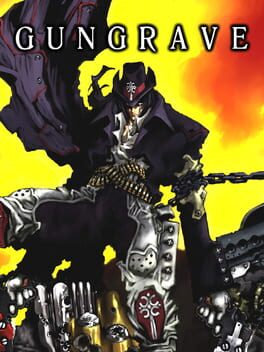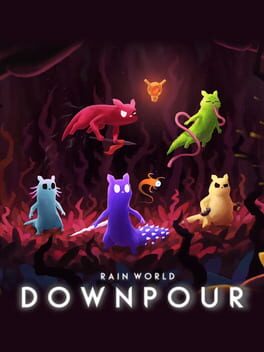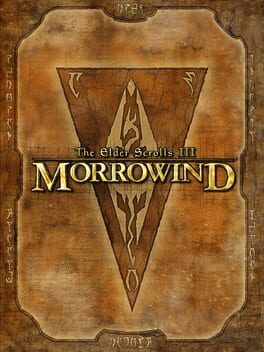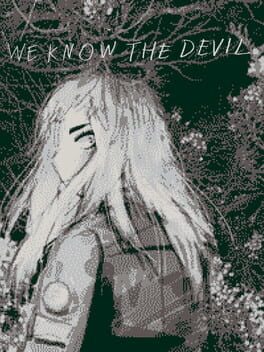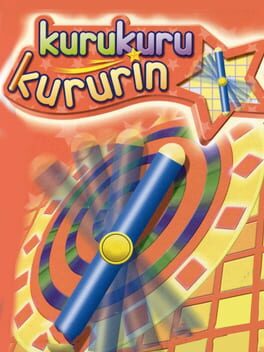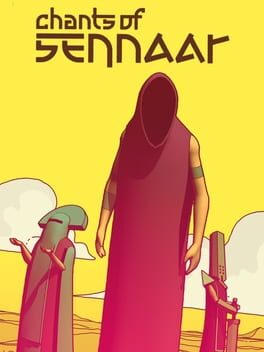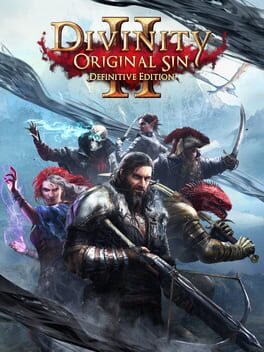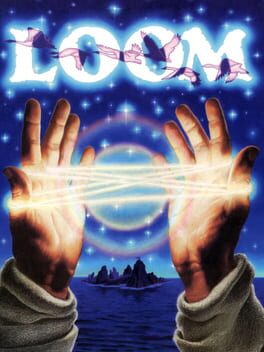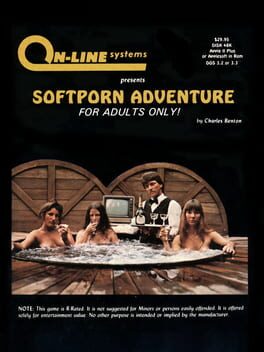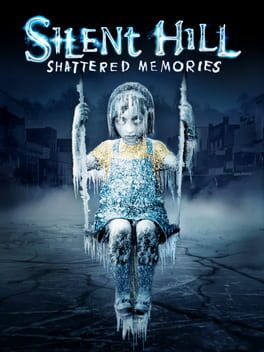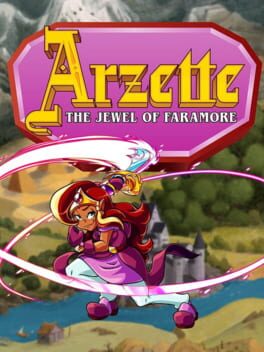amber
237 Reviews liked by amber
Far and away the best Obra Dinn-like that isn't Obra Dinn.
Obviously loses some points on the presentation side of things but gets them right back for being just, like, a free game you can play in your browser literally right now. Kinda difficult to really get mad at the AI photos, no matter how ugly they may be, when the dev's not charging admission and is also working on a Steam upmake with actual art instead.
Sat down with it yesterday night and it hooked me harder than any game has for several months. If you loved Obra Dinn and have played any number of Outer Wilds or Golden Idols trying to chase that high (both of which are good, but not quite scratching that same itch), I'm happy to say that this is the best attempt anyone's made yet.
Obviously loses some points on the presentation side of things but gets them right back for being just, like, a free game you can play in your browser literally right now. Kinda difficult to really get mad at the AI photos, no matter how ugly they may be, when the dev's not charging admission and is also working on a Steam upmake with actual art instead.
Sat down with it yesterday night and it hooked me harder than any game has for several months. If you loved Obra Dinn and have played any number of Outer Wilds or Golden Idols trying to chase that high (both of which are good, but not quite scratching that same itch), I'm happy to say that this is the best attempt anyone's made yet.
Gungrave
2002
Rain World: Downpour
2023
To say that I was skeptical about Downpour going in would be an understatement. The original Rain World is, as of the time of writing, my favorite game of all time. One of the most important things about it to me is that it feels incredibly holistically designed, with every individual component thoughtfully considered in how it relates to the larger whole. Everything in Rain World is interconnected, reflecting the Buddhist existential themes explored within it.
With that, I think you can understand the trepidation I felt when I heard about this expansion. New content of any kind was enough reason to worry about the sanctity of the original experience being trampled over – an entire expansion developed by fans, with new characters, creatures, and regions, along with ““quality of life changes”” (a subtly threatening term when it comes to something as idiosyncratically designed as Rain World)? Let’s just say that I feared the worst. The new slugcats that had been revealed didn’t exactly fill me with optimism, either. Rain World cannot claim to be a realistic game, but it is grounded - and those new slugcats did not look grounded.
Now, Downpour has been released. Were my fears unfounded after all? Well…
Something that I really respect about this expansion, and give endless kudos to the team for, is how humbly it presents itself. Make no mistake, this is an absolutely massive DLC with heaps of new content, and yet the first thing you do after downloading it is navigate a new mod manager setting where all the new stuff is listed. This manager does not distinguish between workshop mods you can download for free and this new expansion you pay actual money for – Downpour essentially declares with pride instead of shame that it is little more than an officially supported collection of fan mods. I really, really appreciate that, because as we’ll see, Downpour is extremely ambitious; a layer of separation between what is and isn’t Videocult’s original work was an absolute necessity in my opinion, and I respect the hell out of the team for refusing to muddy the waters in this regard. More pragmatically, this is also a boon to Downpour’s reception – if you don’t like a creative decision, you can simply remind yourself that this is just one (very talented) team’s take on the original work. Nothing is sullied, but a lot can be gained.
Moving on now to discussing what has actually been added in this expansion: there’s no way around it, Downpour is a very different experience to classic Rain World in almost every regard. It turns the dial considerably towards “gaminess”, and makes for something that is a lot messier design-wise, which I just about expected. What I didn’t really expect was how high the narrative ambitions here were. This is something that would’ve troubled me immensely had I heard about it before release. Surprisingly, though, this came to be probably the part of the experience that I enjoyed the most; thanks to, again, that level of separation between the base game and Downpour, and also because the new narrative stuff is honestly nothing to scoff at quality-wise and came a lot closer to replicating the thematic and atmospheric flavor of the original than I was expecting. Mind you, that does not mean there isn’t any tension between what the original Rain World was going for and what Downpour is. The outlandish abilities of the new slugcats definitely do undermine the grounded ethos a bit, for one (though I appreciate that they’re all given reasonable explanations in-universe). More importantly, though, the narrative priorities have completely shifted.
In the original game, the story of the setting (the "lore") was told in the background and was totally subservient to the player's own personal journey of surviving an enigmatic world. You'd stumble upon Moon, or Five Pebbles, and you'd react with awe and wonder, but lacking context and familiarity, file those experiences away as simply another discovery in a pile of them. In Downpour, what was previously the background narrative takes center stage. You always know where to go – to Pebbles and Moon, probably in that order. That doesn't mean that there are no surprises along the way, but on a whole the design philosophy of Downpour is totally juxtaposed with the original’s. In simpler terms: the original was centered firmly around the journey, whereas Downpour is all about the destination.
The slugcats aren't the protagonists any more - they're side characters in a narrative that centers on the iterators, with our dual protagonists being the two we can visit in-game, Five Pebbles and Looks to the Moon. Now, to be completely accurate, this shift was technically already present in the original game. Fundamentally, every new slugcat campaign in Downpour is building on the groundwork laid by the Hunter’s campaign, which served as the original game’s hard mode. What makes Downpour feel like such a change, however, is the sheer totality of what is added. Hunter felt like a side mode, a way to capitalize on the game’s many brilliant mechanics in a more gamey way while still grounding it narratively. But when you add twice the amount of campaigns the original game had (and counting the Monk separately is honestly generous), it's hard not to look at these "side modes" as having become the main dish. The campaigns are thus reframed as small vignettes that serve as the building blocks of a larger narrative that is far more epic in scale – a real opus, one that presumably spans centuries and centuries. And quality-wise, I found myself rather enjoying the story being told. Though I am a little ambivalent on some particularities, on a whole the arcs of Pebbles and Moon are compelling to follow, and full of evocative moments.
The Saint’s campaign was a particular highlight; seeing the world in an even more ruinous state, collapsing in on itself, with cycles fading out as the periodic torrential rain gives way to never-ending snowstorms, was incredibly affecting and felt like a very fitting note to leave this setting on; though I am a tad conflicted on how bombastically that campaign ends – I almost feel like it totally undermines the quiet poignancy of what came before, but I’d also be lying if I said that I didn’t find it to be a fascinating development that, in many ways, pulls a lot of the threads of the narrative together pretty well.
The rest of the campaigns range narratively from decent to great. Gourmand I don’t have much to say about, but I quite like the addition of the Outer Expanse – venturing outside the grounds of the iterators and back on to your (aesthetically inspired) native turf was very exciting (if a tad fanservice-y). Spearmaster allows for the experience of exploring Moon’s facility and seeing her fully operating, which is nice, but I’m not that fond of how the bulk of the narrative is told through chatlogs. Artificer’s story was like a self-contained filler episode in the context of the larger narrative, but it really won me over as it went on and somehow managed to not make me too troubled over the addition of a boss fight to Rain World of all games – it felt grounded in the narrative and avoided the most egregious pitfalls like Dark Souls style titles and healthbars. And Rivulet operates beautifully as a brief moment of optimism, with Pebbles’ redemption and the restoration of Moon preceding the melancholy of the Saint’s conclusive campaign.
With these narrative additions, a question has arisen in the community on whether Downpour is or isn’t officially canon, and ultimately, I think that question is missing the forest for the trees. It feels to me like Videocult, in officially sanctioning this fan effort, is going beyond basic notions of ‘canonicity’, essentially renouncing total ownership of the setting they’ve created and handing it over to their audience. This is further supported by Downpour separating itself firmly from the original work, and not distinguishing itself from other fan mods anyone can make. The question of canonicity then becomes functionally meaningless and a hindrance to productive discourse. It’s a different work, made by different people, with different priorities. It comments on the original ‘text’ (if you will) extensively, but is ultimately firmly separate. The only question that really matters to me is whether Downpour is engaging, interesting and worth experiencing. My personal answer to that question is that it is.
With that, I think you can understand the trepidation I felt when I heard about this expansion. New content of any kind was enough reason to worry about the sanctity of the original experience being trampled over – an entire expansion developed by fans, with new characters, creatures, and regions, along with ““quality of life changes”” (a subtly threatening term when it comes to something as idiosyncratically designed as Rain World)? Let’s just say that I feared the worst. The new slugcats that had been revealed didn’t exactly fill me with optimism, either. Rain World cannot claim to be a realistic game, but it is grounded - and those new slugcats did not look grounded.
Now, Downpour has been released. Were my fears unfounded after all? Well…
Something that I really respect about this expansion, and give endless kudos to the team for, is how humbly it presents itself. Make no mistake, this is an absolutely massive DLC with heaps of new content, and yet the first thing you do after downloading it is navigate a new mod manager setting where all the new stuff is listed. This manager does not distinguish between workshop mods you can download for free and this new expansion you pay actual money for – Downpour essentially declares with pride instead of shame that it is little more than an officially supported collection of fan mods. I really, really appreciate that, because as we’ll see, Downpour is extremely ambitious; a layer of separation between what is and isn’t Videocult’s original work was an absolute necessity in my opinion, and I respect the hell out of the team for refusing to muddy the waters in this regard. More pragmatically, this is also a boon to Downpour’s reception – if you don’t like a creative decision, you can simply remind yourself that this is just one (very talented) team’s take on the original work. Nothing is sullied, but a lot can be gained.
Moving on now to discussing what has actually been added in this expansion: there’s no way around it, Downpour is a very different experience to classic Rain World in almost every regard. It turns the dial considerably towards “gaminess”, and makes for something that is a lot messier design-wise, which I just about expected. What I didn’t really expect was how high the narrative ambitions here were. This is something that would’ve troubled me immensely had I heard about it before release. Surprisingly, though, this came to be probably the part of the experience that I enjoyed the most; thanks to, again, that level of separation between the base game and Downpour, and also because the new narrative stuff is honestly nothing to scoff at quality-wise and came a lot closer to replicating the thematic and atmospheric flavor of the original than I was expecting. Mind you, that does not mean there isn’t any tension between what the original Rain World was going for and what Downpour is. The outlandish abilities of the new slugcats definitely do undermine the grounded ethos a bit, for one (though I appreciate that they’re all given reasonable explanations in-universe). More importantly, though, the narrative priorities have completely shifted.
In the original game, the story of the setting (the "lore") was told in the background and was totally subservient to the player's own personal journey of surviving an enigmatic world. You'd stumble upon Moon, or Five Pebbles, and you'd react with awe and wonder, but lacking context and familiarity, file those experiences away as simply another discovery in a pile of them. In Downpour, what was previously the background narrative takes center stage. You always know where to go – to Pebbles and Moon, probably in that order. That doesn't mean that there are no surprises along the way, but on a whole the design philosophy of Downpour is totally juxtaposed with the original’s. In simpler terms: the original was centered firmly around the journey, whereas Downpour is all about the destination.
The slugcats aren't the protagonists any more - they're side characters in a narrative that centers on the iterators, with our dual protagonists being the two we can visit in-game, Five Pebbles and Looks to the Moon. Now, to be completely accurate, this shift was technically already present in the original game. Fundamentally, every new slugcat campaign in Downpour is building on the groundwork laid by the Hunter’s campaign, which served as the original game’s hard mode. What makes Downpour feel like such a change, however, is the sheer totality of what is added. Hunter felt like a side mode, a way to capitalize on the game’s many brilliant mechanics in a more gamey way while still grounding it narratively. But when you add twice the amount of campaigns the original game had (and counting the Monk separately is honestly generous), it's hard not to look at these "side modes" as having become the main dish. The campaigns are thus reframed as small vignettes that serve as the building blocks of a larger narrative that is far more epic in scale – a real opus, one that presumably spans centuries and centuries. And quality-wise, I found myself rather enjoying the story being told. Though I am a little ambivalent on some particularities, on a whole the arcs of Pebbles and Moon are compelling to follow, and full of evocative moments.
The Saint’s campaign was a particular highlight; seeing the world in an even more ruinous state, collapsing in on itself, with cycles fading out as the periodic torrential rain gives way to never-ending snowstorms, was incredibly affecting and felt like a very fitting note to leave this setting on; though I am a tad conflicted on how bombastically that campaign ends – I almost feel like it totally undermines the quiet poignancy of what came before, but I’d also be lying if I said that I didn’t find it to be a fascinating development that, in many ways, pulls a lot of the threads of the narrative together pretty well.
The rest of the campaigns range narratively from decent to great. Gourmand I don’t have much to say about, but I quite like the addition of the Outer Expanse – venturing outside the grounds of the iterators and back on to your (aesthetically inspired) native turf was very exciting (if a tad fanservice-y). Spearmaster allows for the experience of exploring Moon’s facility and seeing her fully operating, which is nice, but I’m not that fond of how the bulk of the narrative is told through chatlogs. Artificer’s story was like a self-contained filler episode in the context of the larger narrative, but it really won me over as it went on and somehow managed to not make me too troubled over the addition of a boss fight to Rain World of all games – it felt grounded in the narrative and avoided the most egregious pitfalls like Dark Souls style titles and healthbars. And Rivulet operates beautifully as a brief moment of optimism, with Pebbles’ redemption and the restoration of Moon preceding the melancholy of the Saint’s conclusive campaign.
With these narrative additions, a question has arisen in the community on whether Downpour is or isn’t officially canon, and ultimately, I think that question is missing the forest for the trees. It feels to me like Videocult, in officially sanctioning this fan effort, is going beyond basic notions of ‘canonicity’, essentially renouncing total ownership of the setting they’ve created and handing it over to their audience. This is further supported by Downpour separating itself firmly from the original work, and not distinguishing itself from other fan mods anyone can make. The question of canonicity then becomes functionally meaningless and a hindrance to productive discourse. It’s a different work, made by different people, with different priorities. It comments on the original ‘text’ (if you will) extensively, but is ultimately firmly separate. The only question that really matters to me is whether Downpour is engaging, interesting and worth experiencing. My personal answer to that question is that it is.
obviously u can take me with a grain of salt if u know my tastes,,, but for however badly vivec is laid out, or however weird it is that a bunch of white guys from maryland keep trying to do meaningful commentary on imperialism but their main nuance is to make the occupied peoples Xenophobic and Supremacist, or however overly small and unmotivated the soundtrack is, this rly does come closer then just about anything else to fulfilling the Promise of the computer rpg world. definitely not necessarily the computer rpg, its not really reactive enough for that...but when i first found out about skyrim as a Young Child, the promise that was made that intoxicated me was that i was going to enter an entire world, believable and living, which was my playground but that existed apart from me. currently i do think the Open World is probably best served by less traditional games...eastshade, lil gator game, even death stranding use their spaces for more Big Expressive Ideas then simply to emulate some kind of Reality thru compromised shorthand. but morrowind nails on the goldest possible version of itself...a small island, culturally and politically dense and self-sufficient but still involved in larger conflicts, extremely diverse in terms of aesthetics but all feeling coherent anyway. u see where they get their food, where those who want to get away from everyone else live, where the centers of local and occupational government are, the slow errosion of any imperial structures the further away you are from seyda neen. and the granular growth of the RPG Journey is equally intoxicating...the emphasis on pure Numbers rather then real-time skill is a roadblock to some, but its the main thing that sells your progression...the way it fundamentally feels to do things is appreciably different at the start and end of the game. the faction quests in particular were a huge highlight for me, very simple moment to moment, but their cumulative effect is way more impactful then anything i can recall from skyrim.
when open world games let me keep playing past the completion of the main quest, my main way to achieve closure before the uninstall is to simply walk all the way back to the starting area, preferably to the place i first took control. i aim to do this without any fast travel or consulting the map if possible. in some games this is more feasible then others, but morrowind is perfect for it. in doing so i passed thru some of the first roads i ever walked thru, the first big city i found, the first imperial outpost i found, the first ancestral tomb i raided before giving up on tomb raiding and becoming religious out of penance, the little town where i met the first memorably weird npc who gave me a quest, and finally the place where i killed my first mudcrab. it was, genuinely, a greatly emotionally pregnant experience. the main quest is great honestly, and i love how it ends framing itself as basically a superhero origin story for your character. but more then anything, it felt like My adventure. my aforementioned religious penance, the time i spent adventuring in the bitter coast and west gash before ever going to balmora, the way i slowly clawed my way up to the top of house redornan (which started full of hostile ashlanders and ended with me having a mansion and every guard fawning over me), the way i stumbled into a levitation artifact about halfway through my playthrough that i used up till the end of the game, the way being the nerevarine caused a crisis of faith which had me embracing my new self but still holding onto my temple beliefs stubbornly, and the way that the ordinators that were supposed to be killing me for being a heretic ended up mostly killing me for stealing their sacred armor. i dont think any other of this Kind of rpg has given me these kinds of memories, not even my beloved new vegas. wealth beyond measure indeed.
when open world games let me keep playing past the completion of the main quest, my main way to achieve closure before the uninstall is to simply walk all the way back to the starting area, preferably to the place i first took control. i aim to do this without any fast travel or consulting the map if possible. in some games this is more feasible then others, but morrowind is perfect for it. in doing so i passed thru some of the first roads i ever walked thru, the first big city i found, the first imperial outpost i found, the first ancestral tomb i raided before giving up on tomb raiding and becoming religious out of penance, the little town where i met the first memorably weird npc who gave me a quest, and finally the place where i killed my first mudcrab. it was, genuinely, a greatly emotionally pregnant experience. the main quest is great honestly, and i love how it ends framing itself as basically a superhero origin story for your character. but more then anything, it felt like My adventure. my aforementioned religious penance, the time i spent adventuring in the bitter coast and west gash before ever going to balmora, the way i slowly clawed my way up to the top of house redornan (which started full of hostile ashlanders and ended with me having a mansion and every guard fawning over me), the way i stumbled into a levitation artifact about halfway through my playthrough that i used up till the end of the game, the way being the nerevarine caused a crisis of faith which had me embracing my new self but still holding onto my temple beliefs stubbornly, and the way that the ordinators that were supposed to be killing me for being a heretic ended up mostly killing me for stealing their sacred armor. i dont think any other of this Kind of rpg has given me these kinds of memories, not even my beloved new vegas. wealth beyond measure indeed.
We Know the Devil
2015
If you're a millenial or an early zoomer, there's a chance that Christianity and religion was part of your life at some point, wether you wanted it or not. With the sudden uprise of the LGBTQ+ movement and rights, people are less and less afraid of being queer to the point "gay" is not an insult anymore. We Know the Devil is a story released at a moment in life where acceptance wasn't as present as it is today (online, at least) but christianity and religion was still quite present.
One of the things you'll notice very early on is how unsettling and distant the soundtrack is. Almost as if it always stalking, waiting for the moment to catch you off guard. It doesn't really has much calm moments where you can actually relax. It's a soundtrack that perfectly encapsulates the feeling of trying to hide something, of a danger that is lurking but hasn't striken. It sometimes manifests itself like a broken disc, with static and scratches.
I am unaware if this is intentional or not, but at one point where the game is using the second "messiest" song, they are talking about radio static being described as "God is already warning us".
The writing respects the reader with a storytelling that skips over details and lets you fill in the blanks based on the information you receive with the interaction of each character.
Every time details are given, it's to plant a seed on the reader. A seed of doubt. A seed of curiosity. A seed of inquisivity.
To give a non spoilery example, at one moment the player asks themselves what even is this camp. What are the intentions behind it aside of religious, which is when the game does this clever thing of [i]telling[/i] it's hand rather than showing it by saying it's a camp for "bad kids", which ponders the question of what is considered bad based upon the entire religious context. It is a line delivered fairly early into the game which really helps the reader to start analyzing more and more the possible reasons why these kids were sent here. Although they're ultimately revealed, it has never felt as if the writing is mad at you for not figuring things out earlier.
We Know the Devil might be short, but it takes a lot of care in it's writing , which is something I truly admire.
--
On a personal note, aside of the review and more of a vent than anything, I want to mention that I knew I was trans since a very early age. Religion never truly sticked with me thanks to my brother that really fucking hated going to church (just like me) because of how boring it was. We stopped going at an early age and one of the arguments we gave was that the church is nothing but humans who read the bible and interpreted a specific way. We got out of religion with the excuse that we wanted ot have our own interpretation of the bible and follow our own path with our own beliefs. It is important to note that my brother is 4 years older than I and my brain was too small to formulate these kinds of thoughts yet so all I did was nod to whatever he said for.. some years.
Seeking my own interpretation of the bible, I finally felt at peace. It was the moment where being queer stopped being shameful. Where I started to question myself and how I was feeling -- hell, at one moment I even had the interpretation that we're all our own god, which is the opposite conclusion the game gives in each arc lol --, yet it took me more than 10 years to finally come out of the closet to my family.
I'll never forget how my mom, who volunteers at the church, grabbed me by the arms and told me "please, never be gay. I see them suffer so much". At that moment my young self understood that as "it's not safe to be gay" and therefore.. hid it. I never repressed it, I hid it.
I blocked my family from all social media, I prohibited from entering my room and slowly but surely cut contact with them as much as I could.
I isolated myself from my family out of fear.
As the years went by, my parents and family kept saying they missed me, that they wish I was more present, but every time I tried they all mocked me and pushed me deeper into isolation until I felt like trying wasn't worth it.
After coming out of the closet, my dad did not talk to me for a while. My mom was overwhelmed at basically having her daughter tell her she has to help her rewire her, and my brother had other things to worry about, specially after those years of extreme isolation on my end.
Fast forward to today, I am living in another country with my wife in a family that accepts me and accompanies me as a whole. I'm still in contact with my parents. My dad talks to me but by my deadname and refuses to call me by my now legal name, so I avoid him if possible. My mom wishes she could be closer to me but realizes not even herself knows how to be a woman, and therefore doesn't know how to be a mother. She feels more like a friend that worries about me but doesn't have the words nor means to support me. I'm sorry mom.
My brother on the other hand, I want to call him a cunt but he has all the reasons and rights to be one. It's not like I have been the best sister to him.
I am having a good life where I'm free, loved and don't have to hide myself anymore, but sometimes I have to get reminded of the two decades I spent in the closet to not go there again.
One of the things you'll notice very early on is how unsettling and distant the soundtrack is. Almost as if it always stalking, waiting for the moment to catch you off guard. It doesn't really has much calm moments where you can actually relax. It's a soundtrack that perfectly encapsulates the feeling of trying to hide something, of a danger that is lurking but hasn't striken. It sometimes manifests itself like a broken disc, with static and scratches.
I am unaware if this is intentional or not, but at one point where the game is using the second "messiest" song, they are talking about radio static being described as "God is already warning us".
The writing respects the reader with a storytelling that skips over details and lets you fill in the blanks based on the information you receive with the interaction of each character.
Every time details are given, it's to plant a seed on the reader. A seed of doubt. A seed of curiosity. A seed of inquisivity.
To give a non spoilery example, at one moment the player asks themselves what even is this camp. What are the intentions behind it aside of religious, which is when the game does this clever thing of [i]telling[/i] it's hand rather than showing it by saying it's a camp for "bad kids", which ponders the question of what is considered bad based upon the entire religious context. It is a line delivered fairly early into the game which really helps the reader to start analyzing more and more the possible reasons why these kids were sent here. Although they're ultimately revealed, it has never felt as if the writing is mad at you for not figuring things out earlier.
We Know the Devil might be short, but it takes a lot of care in it's writing , which is something I truly admire.
--
On a personal note, aside of the review and more of a vent than anything, I want to mention that I knew I was trans since a very early age. Religion never truly sticked with me thanks to my brother that really fucking hated going to church (just like me) because of how boring it was. We stopped going at an early age and one of the arguments we gave was that the church is nothing but humans who read the bible and interpreted a specific way. We got out of religion with the excuse that we wanted ot have our own interpretation of the bible and follow our own path with our own beliefs. It is important to note that my brother is 4 years older than I and my brain was too small to formulate these kinds of thoughts yet so all I did was nod to whatever he said for.. some years.
Seeking my own interpretation of the bible, I finally felt at peace. It was the moment where being queer stopped being shameful. Where I started to question myself and how I was feeling -- hell, at one moment I even had the interpretation that we're all our own god, which is the opposite conclusion the game gives in each arc lol --, yet it took me more than 10 years to finally come out of the closet to my family.
I'll never forget how my mom, who volunteers at the church, grabbed me by the arms and told me "please, never be gay. I see them suffer so much". At that moment my young self understood that as "it's not safe to be gay" and therefore.. hid it. I never repressed it, I hid it.
I blocked my family from all social media, I prohibited from entering my room and slowly but surely cut contact with them as much as I could.
I isolated myself from my family out of fear.
As the years went by, my parents and family kept saying they missed me, that they wish I was more present, but every time I tried they all mocked me and pushed me deeper into isolation until I felt like trying wasn't worth it.
After coming out of the closet, my dad did not talk to me for a while. My mom was overwhelmed at basically having her daughter tell her she has to help her rewire her, and my brother had other things to worry about, specially after those years of extreme isolation on my end.
Fast forward to today, I am living in another country with my wife in a family that accepts me and accompanies me as a whole. I'm still in contact with my parents. My dad talks to me but by my deadname and refuses to call me by my now legal name, so I avoid him if possible. My mom wishes she could be closer to me but realizes not even herself knows how to be a woman, and therefore doesn't know how to be a mother. She feels more like a friend that worries about me but doesn't have the words nor means to support me. I'm sorry mom.
My brother on the other hand, I want to call him a cunt but he has all the reasons and rights to be one. It's not like I have been the best sister to him.
I am having a good life where I'm free, loved and don't have to hide myself anymore, but sometimes I have to get reminded of the two decades I spent in the closet to not go there again.
Aisle
1999
Sam Barlow's 'Aisle' is primarily an exercise in impulsive/intrusive thinking. You play as a multi-faceted man (or men) faced with a bag of gnocchi in an aisle at a grocery store. Any valid movement reveals a bit about this man before the story is cut off, often with a dramatic flourish, before you are put at the same exact moment once more. The game's narrative is decidedly solipsistic—all known scenarios are the result of the machinations of the main character(s), be that an ignored mental illness, reeling from tragedy, or being awkward at talking to strangers. Being that the game resets with every valid action, there aren't many in-story consequences for being an asshole or a charlatan. You always know it'll reset, so what's any consequence going to do?
'Aisle', to me, highlights the artifice of the experience above all else: Playing a game simply to play it. Whether or not you find this enjoyable depends on your level of patience, creativity, and need to read the masculine yearning of a man buying groceries. Me, I stopped around 30 minutes in.
'Aisle', to me, highlights the artifice of the experience above all else: Playing a game simply to play it. Whether or not you find this enjoyable depends on your level of patience, creativity, and need to read the masculine yearning of a man buying groceries. Me, I stopped around 30 minutes in.
Kuru Kuru Kururin
2001
Incredibly rewarding game that asks so much executional precision by the end, but is always fair.
(warning most of this review is actually about the Souls games, coming from someone who hasn't liked them so far and who also hasn't put more than like 4 hours total into the whole series lol)
When it comes to these sorts of skill games, I feel like I'm always going to prefer visually clean games that let you get immediately back into the action on a failure. Your obstacles are always 100% clear and every single mistake is immediately obvious and understood. There's no bloat, no wasted space or time, just pure execution.
I like to write them off a lot as a joke, but I do really think my tastes are just fundamentally incompatible with the Souls games as they currently exist. I am never going to enjoy a game that asks a lot of me, and then punishes failure with even as little as 2 seconds of waiting before I'm allowed to try again. When you're locked in, 2 seconds is a long fucking time and it will almost always knock you out of the zone.
And I feel like once you put these execution games into 3D, there's a million more things that can go wrong as far as visual clarity is concerned, and when every boss has different animations and attack patterns, it stops feeling like a challenge you can chip away at and slowly improve with. My go-to examples of mechanically challenging games that I actually like are usually Katana Zero and Celeste, but playing this I realize that it's not just the fast respawn, it's the clarity and total control that 2D offers (and also some 3D shooters, my explanation for including these would just be the same as this part of this Matthewmatosis video that explains why shooters got big during the switch to 3d so just watch that if you're interested).
Back to the topic, trying a level 40 times in Kurukuru Kururin is hardly out of the ordinary. Trying a boss in a souls game 40 times is, from what I understand, a nightmare and something you only get to if you're really having trouble with something. In Kurukuru Kururin, trying something 40 times and seeing that slow, incremental progress, getting just a bit further in the level each time, culminating in beating it? That's perfect, that's exactly what I want from games that ask me to "get good". I just don't see that happening for me with the souls games--given the time length of bosses, the actual mechanical difficulty is going to have to go down, and so the maneuvers feel less satisfying to pull off, and when you're getting knocked out of the zone every time you do make a mistake. Nightmare. "Get good" games should, ideally, maximize the amount of time spent on getting good at them, a loss is punishment enough. Kurukuru Kururin trims every single piece of fat, you're controlling a spinning rod in a maze, nothing more, nothing less, and in its simplicity it's definitely one of the best skill-based games I've played so far.
(warning most of this review is actually about the Souls games, coming from someone who hasn't liked them so far and who also hasn't put more than like 4 hours total into the whole series lol)
When it comes to these sorts of skill games, I feel like I'm always going to prefer visually clean games that let you get immediately back into the action on a failure. Your obstacles are always 100% clear and every single mistake is immediately obvious and understood. There's no bloat, no wasted space or time, just pure execution.
I like to write them off a lot as a joke, but I do really think my tastes are just fundamentally incompatible with the Souls games as they currently exist. I am never going to enjoy a game that asks a lot of me, and then punishes failure with even as little as 2 seconds of waiting before I'm allowed to try again. When you're locked in, 2 seconds is a long fucking time and it will almost always knock you out of the zone.
And I feel like once you put these execution games into 3D, there's a million more things that can go wrong as far as visual clarity is concerned, and when every boss has different animations and attack patterns, it stops feeling like a challenge you can chip away at and slowly improve with. My go-to examples of mechanically challenging games that I actually like are usually Katana Zero and Celeste, but playing this I realize that it's not just the fast respawn, it's the clarity and total control that 2D offers (and also some 3D shooters, my explanation for including these would just be the same as this part of this Matthewmatosis video that explains why shooters got big during the switch to 3d so just watch that if you're interested).
Back to the topic, trying a level 40 times in Kurukuru Kururin is hardly out of the ordinary. Trying a boss in a souls game 40 times is, from what I understand, a nightmare and something you only get to if you're really having trouble with something. In Kurukuru Kururin, trying something 40 times and seeing that slow, incremental progress, getting just a bit further in the level each time, culminating in beating it? That's perfect, that's exactly what I want from games that ask me to "get good". I just don't see that happening for me with the souls games--given the time length of bosses, the actual mechanical difficulty is going to have to go down, and so the maneuvers feel less satisfying to pull off, and when you're getting knocked out of the zone every time you do make a mistake. Nightmare. "Get good" games should, ideally, maximize the amount of time spent on getting good at them, a loss is punishment enough. Kurukuru Kururin trims every single piece of fat, you're controlling a spinning rod in a maze, nothing more, nothing less, and in its simplicity it's definitely one of the best skill-based games I've played so far.
Chants of Sennaar
2023
a linguagem é um norte mecânico pra video game tão forte porque já está na base do que fazemos: descobrir o que cada botão faz num jogo, o que eles significam e como são utilizados é um exercício de tradução por si só. adoro os ângulos de câmera fixos e memorizar os mapas dos andares da torre também, muito lindo.
Chants of Sennaar
2023
at some point i wished the game was just the translation parts of it but eventually i felt like i just didn't particularly enjoy the stealth sections because otherwise this game is such a delight to play, think about and look at. i love how alive and detailed each world is, how satisfying most of the puzzles are, how it was never afraid to pile different layers of complexity on top of the same challenge, how it is so true to itself at all times.
it's a beautiful game, a not-so-subtle take on the healing of the Tower of Babel
it's a beautiful game, a not-so-subtle take on the healing of the Tower of Babel
Thoth
2016
This one's pretty neat, I initially described it as if aliens tried making a twin-stick shooter which is still pretty true but it does a lot of really cool things that I haven't seen anywhere else.
The stage progression is put in the context of 64 single-screen trials, all that have sections with their own gimmicks which finally combine at the last couple levels and that's about as conventional as it gets.
Most of how you'll learn how everything works is through intuition, practically everything is just close enough to what you'd expect out of a game of its genre but it's all twisted up enough that it feels like something else entirely.
Enemies demand your full attention at all times and don't die in one hit, and usually killing one will affect some other mechanism in a level, it's an incredibly interesting and open-ended concept that could have even more done with it but THOTH knows when to end, which is after some rough patches but eventually pulling through. Or maybe not, that's just how my playthrough went.
Menu navigation took a minute to figure out but it's chill, I forgive it entirely on the basis of having little to no actual text, love that. Always thirsting for more games that convey everything through anything besides the burden of textual language.
The stage progression is put in the context of 64 single-screen trials, all that have sections with their own gimmicks which finally combine at the last couple levels and that's about as conventional as it gets.
Most of how you'll learn how everything works is through intuition, practically everything is just close enough to what you'd expect out of a game of its genre but it's all twisted up enough that it feels like something else entirely.
Enemies demand your full attention at all times and don't die in one hit, and usually killing one will affect some other mechanism in a level, it's an incredibly interesting and open-ended concept that could have even more done with it but THOTH knows when to end, which is after some rough patches but eventually pulling through. Or maybe not, that's just how my playthrough went.
Menu navigation took a minute to figure out but it's chill, I forgive it entirely on the basis of having little to no actual text, love that. Always thirsting for more games that convey everything through anything besides the burden of textual language.
Loom
1990
It's really cool to see the LucasArts formula, which I'm mostly familiar with through a Monkey Island context, being applied in a much more serious, storytelling-oriented context. LOOM still has plenty of jokes, but it's also trying to be a more straightforward fantasy story. It's way too short to really pull it off effectively, but it's still fun to see the attempt.
By far the coolest thing about this game is the mode of interaction. It eschews the classic point-and-click "inventory and verb" system for a set of spells that are cast by playing musical notes. Although in a sense this boils down to just a broad set of verbs, it opens the possibility of gaining more verbs throughout the run by being granted them or even deducing them, which feels brilliant. Definitely a game I wish had spawned a bit more of an evolutionary branch, or even just a direct sequel.
By far the coolest thing about this game is the mode of interaction. It eschews the classic point-and-click "inventory and verb" system for a set of spells that are cast by playing musical notes. Although in a sense this boils down to just a broad set of verbs, it opens the possibility of gaining more verbs throughout the run by being granted them or even deducing them, which feels brilliant. Definitely a game I wish had spawned a bit more of an evolutionary branch, or even just a direct sequel.
Softporn Adventure
1981
Sometimes you play a game that maybe isn't the best in the series, but it feels like the one that's made for you. That's Shattered Memories for me. A game that delves deep into topics that resonate with me a lot. A game that, after two pretty unoriginal or weak entries, feels like a game that is actually taking advantage of what makes a franchise like Silent Hill so amazing. A game that is just, so fucking beautiful. I get not everyone will like this as much as me, but if you give it a shot, you might see something truly special.
bought and installed within the first minute of availability, which idk i will ever do for a game again, so feel free to take my autism with a grain of salt. but this is an exceedingly, endlessly lovable piece of art, one which reaffirms just about everything ive grown to believe about art in the first place. the source material , once uncomplicatedly loathed, has been slowly chipped away at by years of collective intimacy...sentences heard as groups of syllables, individual frames of animation immortalized, control quirks forced to be grappled with, npc requests and locations forced to be stored away in memory. this is to say nothing of the dedication it took to create an entire fan remaster, which leads directly into arzette via its lead developer. the result is a combination of nostalgic warmth, a grasp of what is compelling and memorable and striking about those games, and a melancholy stare at the parts that could have been better...a melancholy that could only be sated Through creation.
arzette will be described by many people as "the cdi zeldas but good." having enjoyed the remasters of those games, its more the final step in a process of escalation towards "the cdi zeldas, but there is less in the way of the good." the ultra-memorable quirk and expressiveness of the animation and voice acting are more widely acknowledged as boons now, but arzette also runs with the gorgeous background art, the lush and memorable music, and the miniature zelda experience via an interlocking spread of bite sized metroidvania maps. since its no longer on the cdi, individual screens are much meatier, which does make it slightly longer to recheck places (and rechecking places is what youre doing a Lot in all of these games, but especially this one with its more complex item progression), but it also allows for much more deliberate and satisfying level and encounter design. tricks from the cdi games have their most unpleasant edges sanded off, yet still retain their character. its by any measure an improvement on its inspirations, yet it never once feels judgemental or callous...instead it feels freed and joyus, the result of passion and time and effort and improved technology, chipping away at a dream created almost accidentally by people working with a bad console under tight time pressure.
and more then anything, even with some fun and dry meta jokes, i may not play a game more full of shamelessly earnest love this year. its close proximity with its source material allows it to share a bunch of discoveries its made that its so bubblingly excited about...yet its also an individual and distinctive piece of art carrying with it all the best sensibilities of contemporary metamodern media engagement, a plea to look closely at things that are dismissed and create beauty out of them. its most singular advancements are not its polishing up of rough gameplay ideas, but are in its disarmingly heartfelt and kind story and general tone. i know many people are cynical about pastiche, esp in a world where the same ideas are endlessly recycled over and over...but art should be about the free exchange of ideas, putting them out in the world for other people to respond to, feel about, and create on top of. it certainly cant be dismissed out of hand if it produces results like this even occasionally. hot moose man.
arzette will be described by many people as "the cdi zeldas but good." having enjoyed the remasters of those games, its more the final step in a process of escalation towards "the cdi zeldas, but there is less in the way of the good." the ultra-memorable quirk and expressiveness of the animation and voice acting are more widely acknowledged as boons now, but arzette also runs with the gorgeous background art, the lush and memorable music, and the miniature zelda experience via an interlocking spread of bite sized metroidvania maps. since its no longer on the cdi, individual screens are much meatier, which does make it slightly longer to recheck places (and rechecking places is what youre doing a Lot in all of these games, but especially this one with its more complex item progression), but it also allows for much more deliberate and satisfying level and encounter design. tricks from the cdi games have their most unpleasant edges sanded off, yet still retain their character. its by any measure an improvement on its inspirations, yet it never once feels judgemental or callous...instead it feels freed and joyus, the result of passion and time and effort and improved technology, chipping away at a dream created almost accidentally by people working with a bad console under tight time pressure.
and more then anything, even with some fun and dry meta jokes, i may not play a game more full of shamelessly earnest love this year. its close proximity with its source material allows it to share a bunch of discoveries its made that its so bubblingly excited about...yet its also an individual and distinctive piece of art carrying with it all the best sensibilities of contemporary metamodern media engagement, a plea to look closely at things that are dismissed and create beauty out of them. its most singular advancements are not its polishing up of rough gameplay ideas, but are in its disarmingly heartfelt and kind story and general tone. i know many people are cynical about pastiche, esp in a world where the same ideas are endlessly recycled over and over...but art should be about the free exchange of ideas, putting them out in the world for other people to respond to, feel about, and create on top of. it certainly cant be dismissed out of hand if it produces results like this even occasionally. hot moose man.

